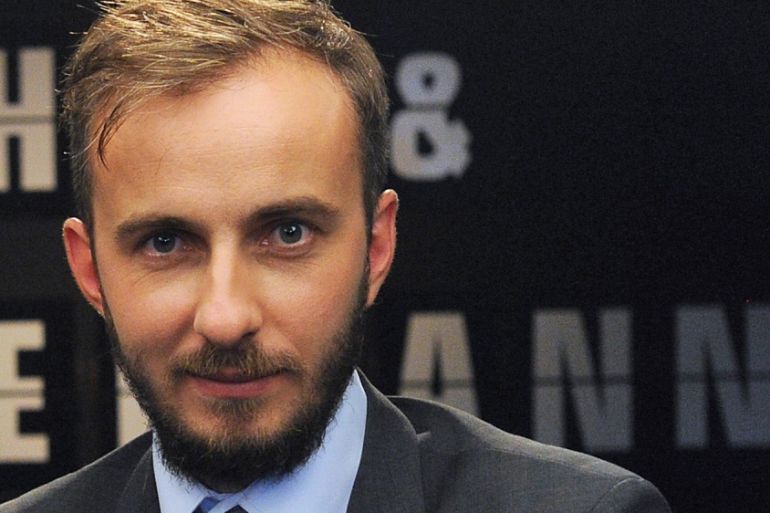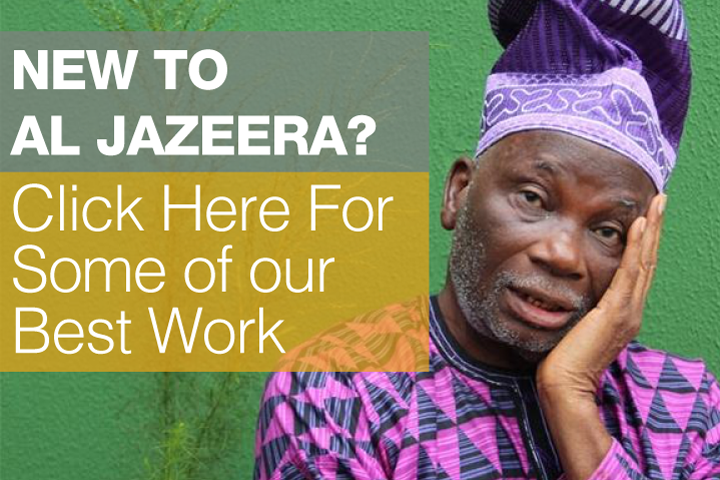What next for the media in Middle East and N Africa?
Media is political by nature in addressing the public, and that is its impact on societal transformation.

The media’s power to engage society is increasingly transforming society itself. The “satire crisis” that erupted between the German government and Turkish President Recep Tayyip Erdogan in mid-April illustrates this well.
The explosion over this interplay of free speech, freedom of the arts and politics went viral as a subject of public debate, turning a local story into a global one overnight.
Keep reading
list of 4 itemsGeorgia advances ‘foreign agents’ bill as 20,000 rally against it
NPR editor resigns after accusing US outlet of liberal bias
Lawmakers brawl as Georgian Parliament considers ‘foreign agent’ bill
Why? Because media is now both messenger and message – powering big-data levels of audience response with rapid-fire rounds of news, in this case threatening both countries’ leader image, cultural values, even diplomatic relations.
Transforming popular will
How has this become possible? German academic Jurgen Habermas anticipated this back in 1962 in his classic work The Structural Transformation of the Public Sphere (PDF). Media, he argued, is powerful because it gives society knowledge and perspective to make sense of the environment.
It helps explain technological developments, economic growth, and the effect of population increases – all of which, in turn, accentuate the media’s own power in modern societies. What Habermas realised was that this gives the media the ability to form, and indeed, transform, popular will.
We are living in a time of profound media impact. Google, Facebook and Twitter are outpacing all the established print and broadcast platforms as sites of choice for breaking news.
Discussion about the interconnection of old and new media – hybrid media – and their societal implications is gripping the boardrooms of media companies around the world.
”[The
create distinct modes of legitimacy – and depending on the historical and political climate they can reduce or increase government restrictions on free media access.”]
Anticipating where media is going, however, is not just about the future – and how today’s millennials are using it. Because of media’s multifaceted effect on society, questions about its current and future trajectory, if they are to be accurately addressed, depend on context, since the media is a canvas that not only records news but public memory.
This is where the academic community comes in, for looking at the media-society nexus from a different perspective, as Habermas did.
Scholars can track trends, and foresee changes in the public square that might escape those working with a focus on the marketplace in the shorter term.
Media programmes have been ballooning in universities around the world. At the University of Cambridge, a Media in Political Transition programme was started three years ago. The programme looks at how media transformations in the southern Mediterranean are being affected by politics – and vice versa.
The project has concentrated on Tunisia, Morocco, and Turkey, but many of the findings are equally relevant for neighbouring states as well as for many of the southern European states across the Mediterranean.
The final results will be published in spring 2017. Two dimensions, for now, stand out when looking at the media’s societal context.
Media and government
The first dimension is the media and government. It is often assumed that media should function as a fourth estate independent of government, and hence should act as society’s conscience.
This is a globally ambivalent issue. Freedom House’s report Freedom of the Press 2016 states that “[o]ver the past 10 years, Europe as a whole has suffered the largest drop in press freedom of any region.”
In the Middle East and North Africa, even with the advent of social media, and despite its importance to the 2011 Arab uprisings, the media’s relationship with government remains in flux, sometimes acting as the people’s conscience, sometimes acting as the government’s instrument.
In each of the countries being examined, the agencies responsible for regulating audio-visual media are semi-independent of the government and, in principle, able to provide a level of immunity from government interference.
Turkey’s Radio and Television Supreme Council (RTUK) and Tunisia’s Independent High Authority of Audiovisual Communication (HAICA) consist of members chosen and confirmed by their respective parliaments. Morocco’s High Authority for Audiovisual Communication (HACA) has members appointed by the king, the prime minister and president of the parliament.
These differences create distinct modes of legitimacy and, depending on the historical and political climate, they can reduce or increase government restrictions on free media access.
At the same time, the media landscape is never flat, but multilevelled. This means that understanding why and how restrictions are occurring in one area – for example, newspaper closures – and why parallel restrictions are not occurring in another media area – such as online – can provide useful insights on government power, technological capabilities, and audience activism.
Media and surveillance
The second dimension is media and surveillance. Another indicator of the intertwined nature of the media and politics is the surge in surveillance programmes and whistle-blowers.
Debates point to a significant uptick in controlling and un(covering) consumer communication habits by surveillance programmes but, likewise, a growth in leaks, not just on a global scale, such as the Edward Snowden case and the recent Panama Papers, but locally.
OPINION: Journalism as the immune system of societies
In Turkey, the messages sent by mysterious Tweeter Fuat Avni conveyed surprisingly accurate insider information about government intentions towards the media for over a year.
In Morocco, a similar strategy was adopted by an equally mysterious Twitter handle bearing the name of Chris Coleman. In both cases, government documents and decisions were relayed as evidence, illustrating that a reconfiguration is taking place in which information secrecy is no longer guaranteed, and individual will is shifting the rules of public and private.

It is worth asking, does the sheer number of participants transform what becomes “mediated surveillance” – and “mediated whistle-blowing”? And how is that differently interpreted in states such as Turkey, Tunisia and Morocco?
Media is political by nature in addressing the public. This is what lies at the heart of its effect on societal transformation.
By looking at these changes from both a commercial and an academic perspective, and by combining information in interdisciplinary ways, it becomes possible to think out of the box. And then to anticipate what society’s relationship with media might turn into next.
Roxane Farmanfarmaian is a lecturer at the University of Cambridge, Centre for the Study of the International Relations of the Middle East and North Africa.
Ali Sonay is the Al Jazeera postdoctoral research fellow with the University of Cambridge-Al Jazeera Center for Studies media project at the Department of Politics and International Studies.
This article was produced as part of a collaboration between the University of Cambridge and the Al Jazeera Centre for Studies.
The views expressed in this article are the author’s own and do not necessarily reflect Al Jazeera’s editorial policy.